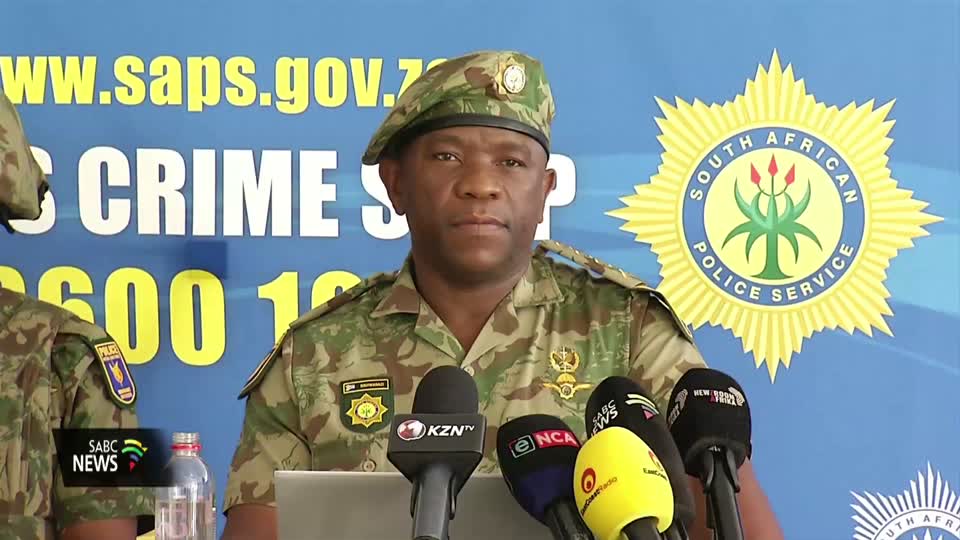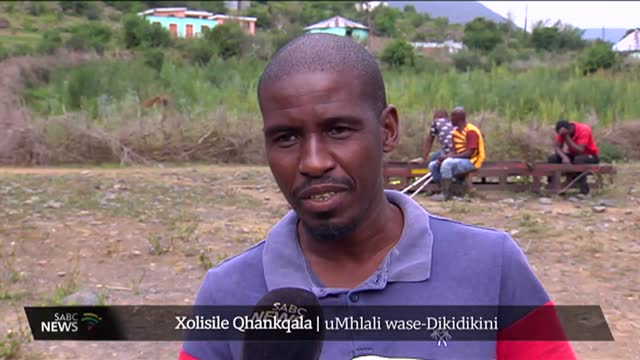
Rebuilding After the Floods ,Mpumalanga & Limpopo In the wake of devastating floods in Mpumalanga and Limpopo, families who lost homes, belongings and livelihoods are trying to rebuild from the ground up, often with little more than donated food parcels and temporary shelter. This story follows flood-affected communities as they navigate damaged roads and bridges, unsafe water sources, and the slow process of restoring schools, clinics and basic services. At the centre are ordinary residents who say recovery is not just about fixing infrastructure but restoring dignity and stability, especially for children, the elderly and those living in rural villages cut off from help. As government and aid organisations roll out relief and repair plans, questions remain around how quickly assistance reaches the most vulnerable, what “rebuilding” really looks like months later, and whether these provinces are becoming more prepared for extreme weather events that keep returning For more news, visit sabcnews.com and #SABCNews on all Social Media platforms.

Baleni: Salt of the Earth follows the women of Baleni in Limpopo who have harvested salt by hand for generations. It looks at their traditional methods, the spiritual value of the land, and the challenges threatening the future of this sacred practice as support declines and younger people lose interest.

In the lead-up to the 2025 G20 Summit in Johannesburg, the city launches a massive crackdown on inner-city informal traders, suddenly enforcing long-ignored bylaws and introducing a strict verification and new permit system. Hundreds of street vendors – many of whom have traded legally for years – are forcibly removed from prime spots such as De Villiers and King George streets, accused of trading illegally or lacking proper facilities. The episode follows several traders, including Mama Felani Kheswa (a food vendor with a valid city-issued permit and certificate of acceptability) and Miriam Gabone, who are bewildered and financially devastated after being barred from their usual pitches despite holding documentation. At the heart of the story is the politically charged verification process ordered by the High Court: thousands of traders – especially non-South Africans – simply do not come forward, fearing deportation or because they lack the required paperwork. The programme exposes the growing influence of nativist movements: Patriotic Alliance activist Victoria Mogoba openly calls for mass deportation of African migrants, while Operation Dudula’s Thabo Moeketsi (of the now-banned “SA Standard” TikTok account) is shown blocking foreign nationals (including parents with sick children) from accessing public clinics in Soshanguve – actions later interdicted by the Gauteng High Court. Johannesburg Mayor Dada Morero insists the clean-up is purely about bylaw enforcement and creating a “clean, safe city ahead of the G20, rejecting claims it is an anti-foreigner campaign timed for political gain before the 2026 local elections. Yet the South African Informal Traders Forum accuses him of using the operation to counter the rising popularity of Operation Dudula and parties like the Patriotic Alliance. With nationalist rhetoric surging, foreign nationals increasingly scapegoated for crime and unemployment, and traders left unable to feed their families, “Traders” asks whether Johannesburg’s historic promise of hope and opportunity – the very essence of the City of Gold – is being permanently rewritten in favour of a narrower, more exclusionary vision.

A 20-year-old rape victim from Tsolo in the Eastern Cape recounts her ordeal after she was allegedly raped repeatedly by her pastor, who was also a teacher. The teacher impregnated his victim and allegedly gave her pills to terminate the pregnancy without her knowledge. He continued to rape her while using protection afterwards and only stopped after the victim’s family eventually opened a case at the Tsolo Police Station early in 2025. Police say the arrest is looming. The victim has been granted permission by Rhodes University to study from home so that she can attend psychological therapy sessions, as she has been diagnosed with depression. In the second case study, a learner from St John’s College in Mthatha says she contemplated taking her own life after she was allegedly offered a lift by a teacher—older than her father—who touched her inappropriately along the way. The teacher allegedly demanded a hug and a kiss before allowing her to leave. The incidents occurred in 2022 and 2023 respectively. A case has been opened, and investigations are underway. Seven teachers have been suspended from St John’s College alone, accused of engaging in sexual relationships with learners—an act that is unlawful under the Educators’ Act of 1998. Learners from St John’s College recently raised alarm over an increasing number of such incidents, alleging that some of these relationships were non-consensual. A teacher from Ngangelizwe High School is among those suspended by the Eastern Cape Department of Basic Education after he allegedly lured a learner to his house and raped her. SADTU in the province has condemned the implicated teachers, saying their actions bring the profession into disrepute. Children’s Rights Organisation KHULA has called on the Department of Education to ensure that both the SACE Code of Ethics and the Department’s regulations are fully implemented to dismiss those found guilty of misconduct

Since the dawn of democracy, South Africa has established numerous commissions of inquiry — from the historic Truth and Reconciliation Commission to the forthcoming Madlanga Commission. But what function do these commissions truly serve? Are they legitimate tools in the pursuit of justice, or mechanisms that can be manipulated to protect those in power?
Save video to ...











